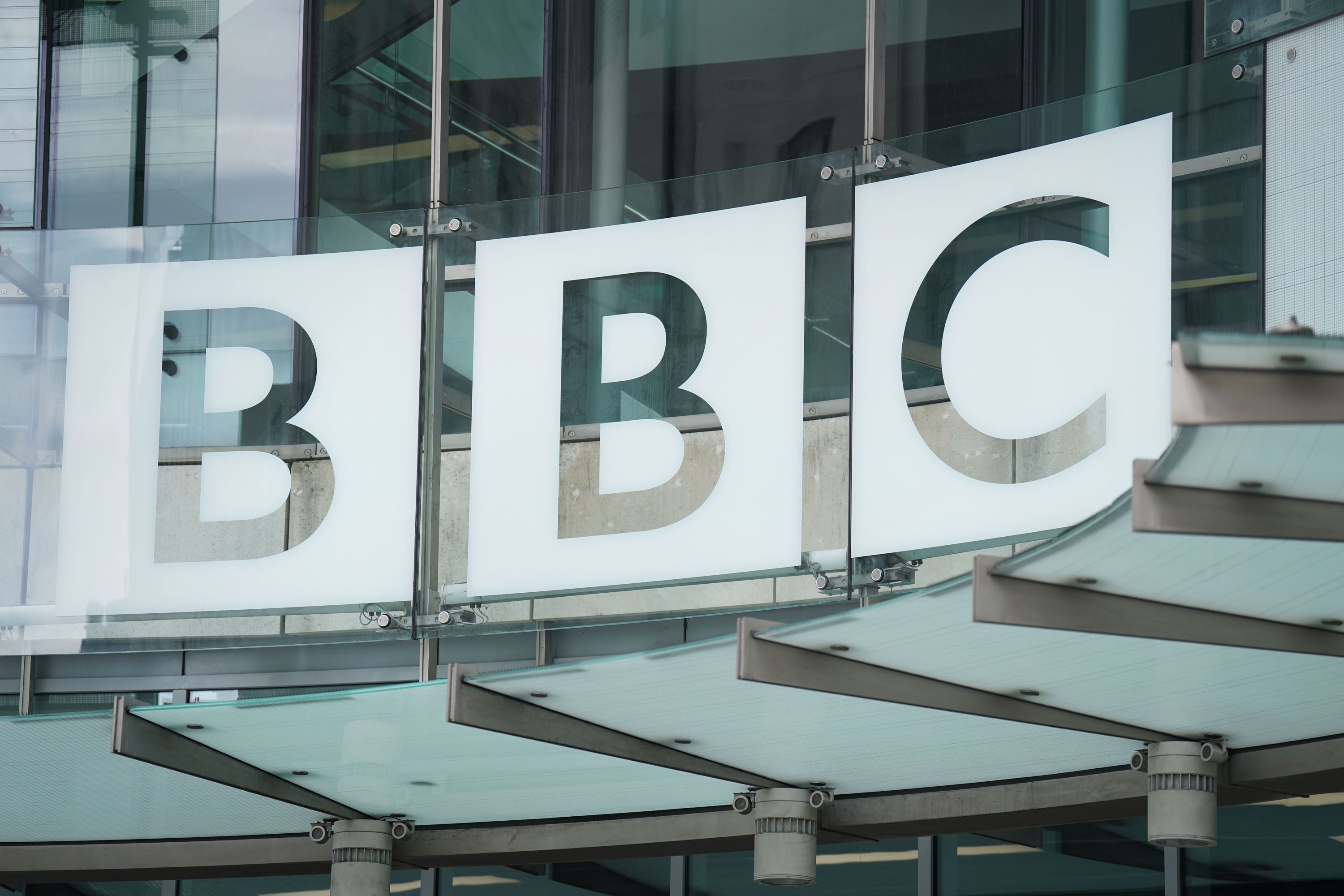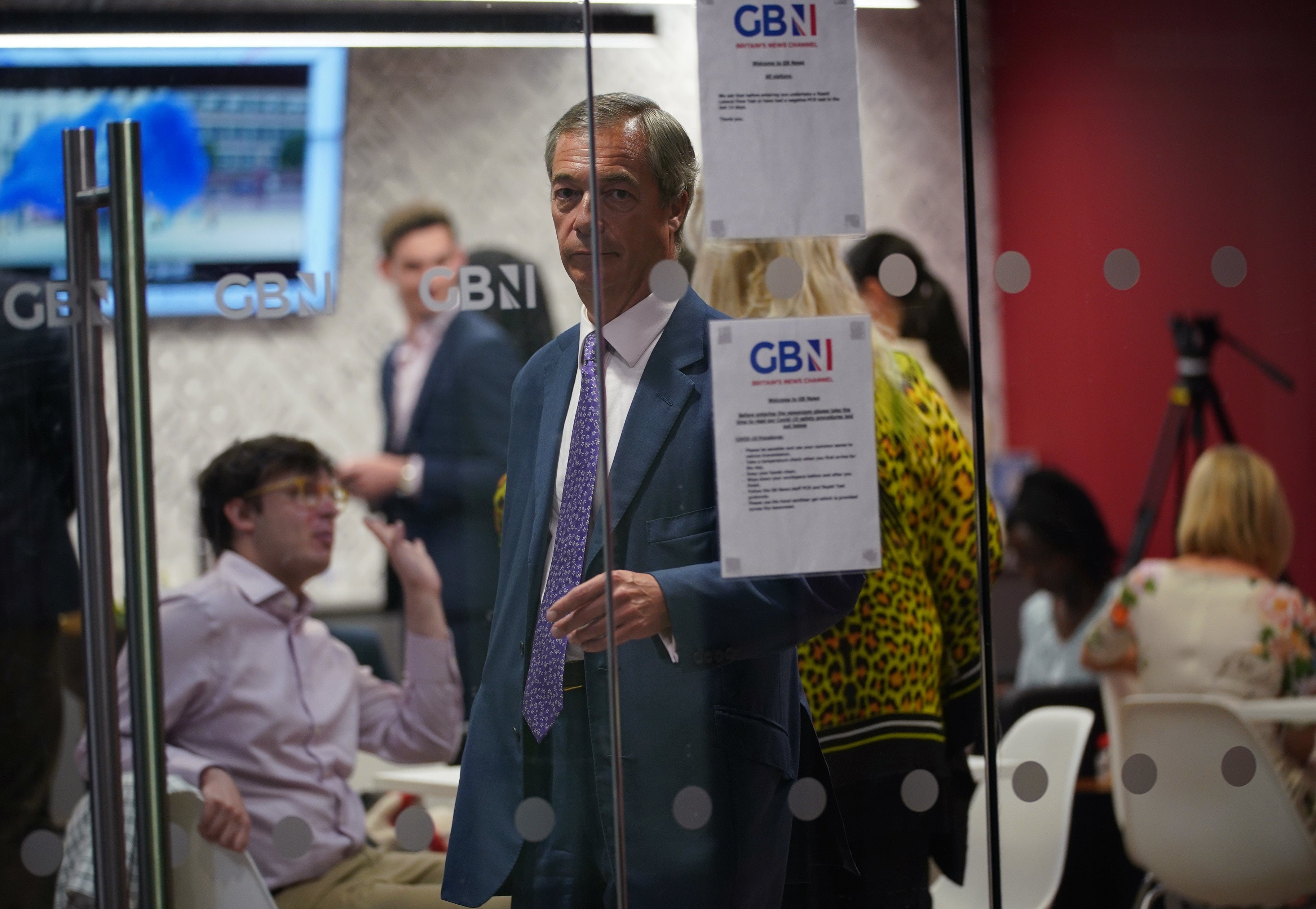BBC risks losing working class viewers to GB News, Lords report finds
BBC bosses should “reflect” on the rise of GB News, the report finds

Your support helps us to tell the story
From reproductive rights to climate change to Big Tech, The Independent is on the ground when the story is developing. Whether it's investigating the financials of Elon Musk's pro-Trump PAC or producing our latest documentary, 'The A Word', which shines a light on the American women fighting for reproductive rights, we know how important it is to parse out the facts from the messaging.
At such a critical moment in US history, we need reporters on the ground. Your donation allows us to keep sending journalists to speak to both sides of the story.
The Independent is trusted by Americans across the entire political spectrum. And unlike many other quality news outlets, we choose not to lock Americans out of our reporting and analysis with paywalls. We believe quality journalism should be available to everyone, paid for by those who can afford it.
Your support makes all the difference.The BBC risks losing viewers from lower income backgrounds to “alternative” broadcasters like GB News if it doesn’t reform its coverage, a report from the House of Lords has found.
Entitled ‘The Future of News,’ the wide-ranging report says that current news media trends point to a “grim” future. Its authors warn that a “two-tier” news environment is emerging where only large media brands and niche outlets have a financial future.
Looking to the BBC, the report says that the broadcaster’s reporting must “take account of and reflect” the reasons that working class viewers are increasingly turning away from it.
It points to Ofcom research that finds lower income groups feel “criticised or caricatured” rather than authentically reflected.
One respondent, a woman from Derry who identifies as working class, told Ofcom’s researchers: “The BBC do occasionally show working class people, but when they do it’s not like they’re shown in a good light. They’re either being criticised or laughed at.”
This is a widely-held opinion, the Lords report finds, one which is driving working class viewers away from the BBC and leading them towards new “alternative” broadcasters.
The rise of GB News
Chief amongst these is GB News, the free-to-view TV channel which launched in 2021. This has been a central aim of the broadcaster, with CEO Angelos Frangopoulous telling the Lords that his aim was to target “underrepresented” communities.
“Our research revealed that there were communities in the United Kingdom who genuinely did not feel that metropolitan-based media reflected or reported what was important to them,” he said.
However, while regular viewers of the channel reported high levels of trust, accuracy and impartiality, expert opinions are generally less favourable.

The channel has come under fire in recent years for hiring politicians such as Nigel Farage and Lee Anderson in prime hosting spots. Ofcom has also found the channel in breach of its rules 12 times since its launch, fining it £100,000 in October.
Professor Steven Barnett told the Lords that, alongside Talk TV, GB News is “avowedly partisan” and have displayed a “contempt for balance”. Others argue that the emergence of these platforms points to a “Foxification” of UK news, as they mirror the US Fox News’ model of news as entertainment.
The Lords report concludes that while GB News does “provide an alternative,” it must abide by rules around impartiality.
What does this mean for the BBC?
The BBC “must address its shortcomings,” the Lords report finds, outling several steps. The public broadcaster is advised to reflect on why alternative platforms like GB News are on the rise and how “underserved communities are represented in their own news coverage”.
The BBC accepted that trust is lower amongst lower income groups, but has defended itself against some of the reports findings. It points out that it continues to still be the most trusted amongst all groups, with the Lords report acknowledging that it is still the most watched news broadcaster.
In addition, 20 per cent of the BBC’s workforce comes from lower socio-economic backgrounds, which bosses aim to boost to a quarter by 2025.
This is higher than the average in news media, at only nine percent, and just below the national average of 22.6 per cent.
A BBC spokesperson said: “BBC News is committed to providing independent and impartial news for all audiences across the UK and as the most widely used and trusted news provider, we take this responsibility very seriously.
“We recognise the challenges of disinformation and the importance of reaching all audience groups which is why we have launched BBC Verify and Your Voice, Your BBC News – which asks our audience about what really matters to them – to address these issues.”
Join our commenting forum
Join thought-provoking conversations, follow other Independent readers and see their replies
Comments